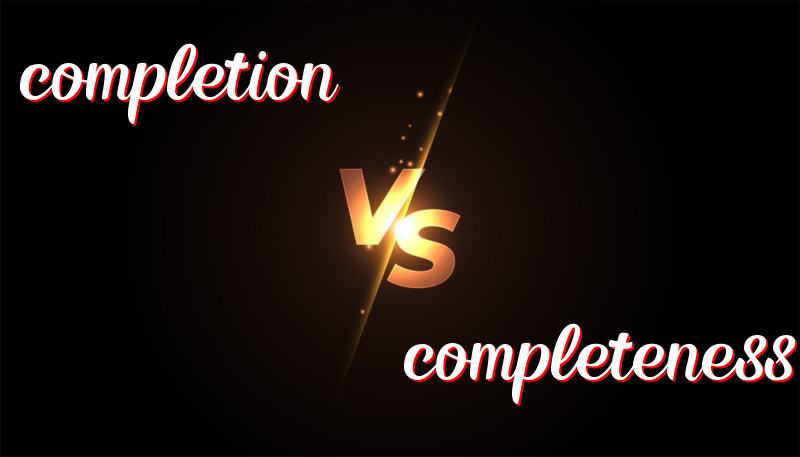**Understanding Completion vs. Completeness**
The words completion and completeness are similar but have different meanings.
**History**:
– **Completion** comes from the Latin word “completio” meaning a finishing.
– **Completeness** has its roots in the Old English word “complētnes” referring to being whole or full.
**How to Use**:
– Use **completion** when talking about reaching the end or finishing something.
– Use **completeness** to describe the state of being whole or entire.
**Trick to Remember the Difference**:
– **Completion** has the word “complete” in it, which can help you remember it means finishing.
– **Completeness** has “ness” at the end, similar to other words describing a state or condition.
**Usage of Completion**:
1. She received a certificate upon the **completion** of the course.
2. Can you confirm the **completion** of the project by Friday?
3. The **completion** of the puzzle brought a sense of accomplishment.
4. After the **completion** of her studies, she started looking for a job.
5. The deadline for **completion** is approaching fast.
**Usage of Completeness**:
1. The **completeness** of his knowledge impressed the teacher.
2. Achieving **completeness** in his collection of stamps took years.
3. The report lacked **completeness** due to missing data.
4. The **completeness** of the book’s ending left readers satisfied.
5. Let’s strive for **completeness** in our understanding before making a decision.
**Summary**:
– **Completion** refers to finishing or reaching the end of something.
– **Completeness** describes the state of being whole or complete.

Leave a Reply
You must be logged in to post a comment.